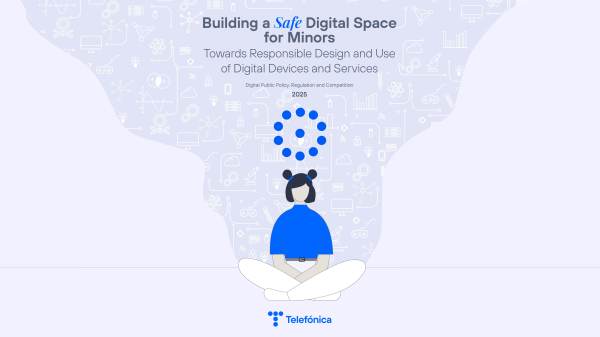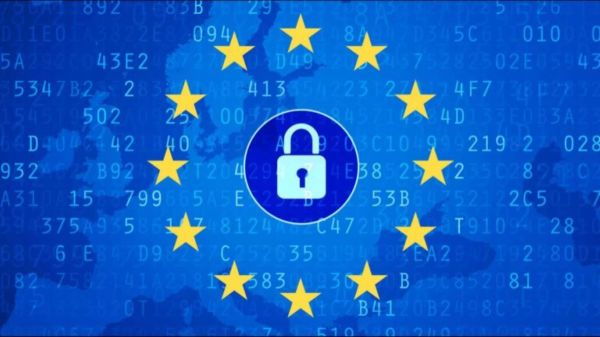Telefónica Public Policy & Telefónica España Regulatory teams
Every year thousands of children disappear in Europe. A missing child may have run away to escape family problems, be an unaccompanied immigrant minor, be a victim of criminal or parental kidnapping, or may be lost or injured.
These children are unprotected. Their disappearance is always a tragic situation where a quick response by anyone who has any information can be vital for saving their life. The European Union has tried to make its contribution by harmonizing the telephone number for reporting the disappearance of children, 116000, so that such cases may be reported throughout the EU. Although this hotline is supported by 91% of Europeans, it has not met with the anticipated success. The EC target is to have the 116000 hotline active in all Member States by May 2015. For the time being, this line is only operational in 17 Member States. Regarding the 10 remaining countries, only seven of them have reserved the number for future use however the hotline is not yet operational. What’s more, society, in general, is still not aware of its existence and use: only 1 out of 5 EU citizens are aware of this hotline.
In this context, Neelie Kroes, Vice President of the European Commission in charge of the Digital Agenda for Europe, is determined to re-launch this initiative and over the next year disseminate it as much as possible relying on the support of telecom operators and Member States. Promotion and dissemination actions began on 25th May, European Day of Missing Children , and have continued this week with a European Commission high-level conference on “Missing Children: Closing the gaps – 116 000 hotlines and child abduction alert systems”.
At this conference, Viviane Reding, Vice President of the European Commission responsible for Justice, Fundamental Rights and Citizenship, and Neelie Kroes agreed that the result of these hotlines is unsatisfactory due to the lack of commitment by some Member States. Mrs. Reding said that the EC had sent a letter to those Member States that have not yet implemented the hotline to inquire why they have not implemented them yet. Those countries have six weeks from now on to respond to the EC. Regarding the child abduction alert systems, these are currently only operational in 11 Member States.
At Telefónica, we are committed to protecting minors and have answered the call for support, in order to help disseminate this telephone hotline for reporting any missing children.
Children have the right to grow up in freedom, have an identity, family, education, not to be abused, and are entitled to protection and aid. These rights, agreed upon by most nations of the world back in the 90’s, are still quite valid today. Their enforcement also extends to the virtual world in which many children develop, play and learn.
In Spain, the ANAR Foundation is in charge of managing 160000 for reporting cases involving missing children. It operates 24 hours a day, seven days a week, completely free of charge throughout Spain and is staffed by a team of psychologists, social workers and lawyers, in close cooperation with the State Security Forces. It also has numbers that can be called to help those children and parents who are in difficulty. Likewise, it facilitates communication with other countries in Europe that are taking part in the initiative. Telefónica España has been the designated telephone services operator for the Foundation’s call termination.
Regarding the Internet, the association Protégeles (www.protegeles.com), is the other Spanish member of MissingChildrenEurope that facilitates and promotes the reporting of any pages containing illegal or inappropriate content for children and takes action to improve the safety of children on the Internet.
In the UK, Missing People is concerned with the support of the families of missing persons and assists in the search for missing persons. Whilst priority is given to cases of missing and abducted minors, the Hotline also undertakes searches for persons of any age for whom there is concern for their health or safety e.g. mentally ill, elderly, suicidal, in need of medication, etc.
In Germany, Weisser Ring assists victims of crime in a quick and unbureaucratic way providing emotional support after crime, assistance in dealing with the authorities and support in court, financial support and a nation-wide toll-free 24 hour emergency number.
In Ireland, the ISPCC exists to advocate on behalf of all children in Ireland, and to provide a range of independent and unique services which are preventative and empowering in nature.
In the Czech Republic, Our Child Foundation helps children in life-crisis situations, to assert children’s rights and to uphold the Convention on the Rights of the Child in the Czech Republic. Its aim is to support all humanitarian projects, which contribute to the creation of an effective child protection system in the Czech Republic.
In Slovakia, Linka detskej istosy was created under the aegis of the National Committee for UNICEF in Slovakia in 1996. The organisation’s activity areas include:
- missing children: prevention, training, research and educational campaigns,
- sexual exploitation: helpline operation, prevention, counselling and training.
Post written in collaboration with María José Cantarino de Frías, Corporate Responsibility Manager of Telefónica, S.A.









